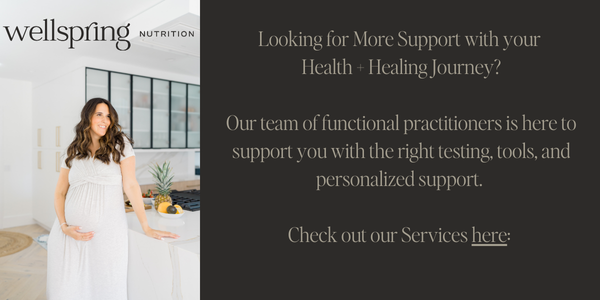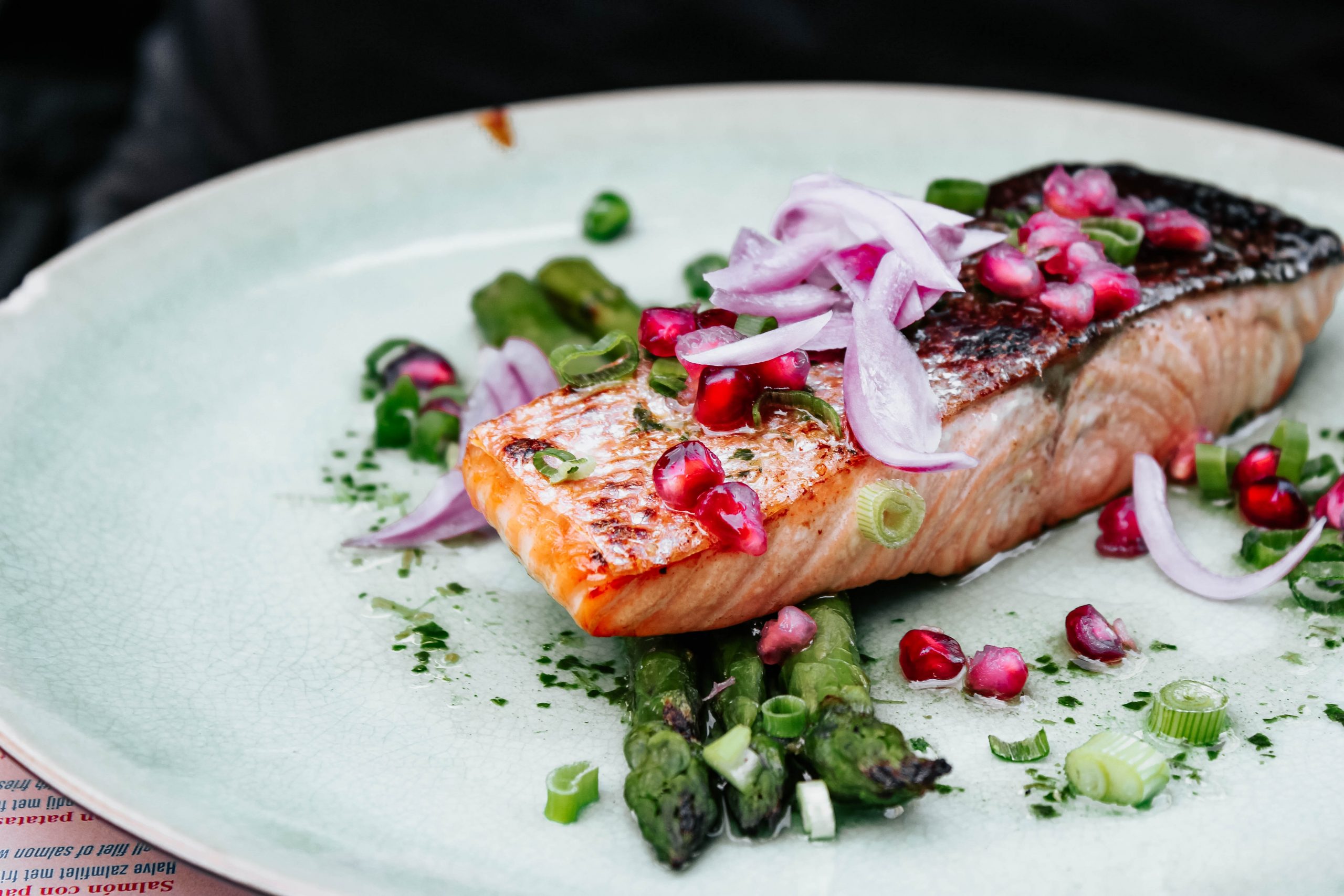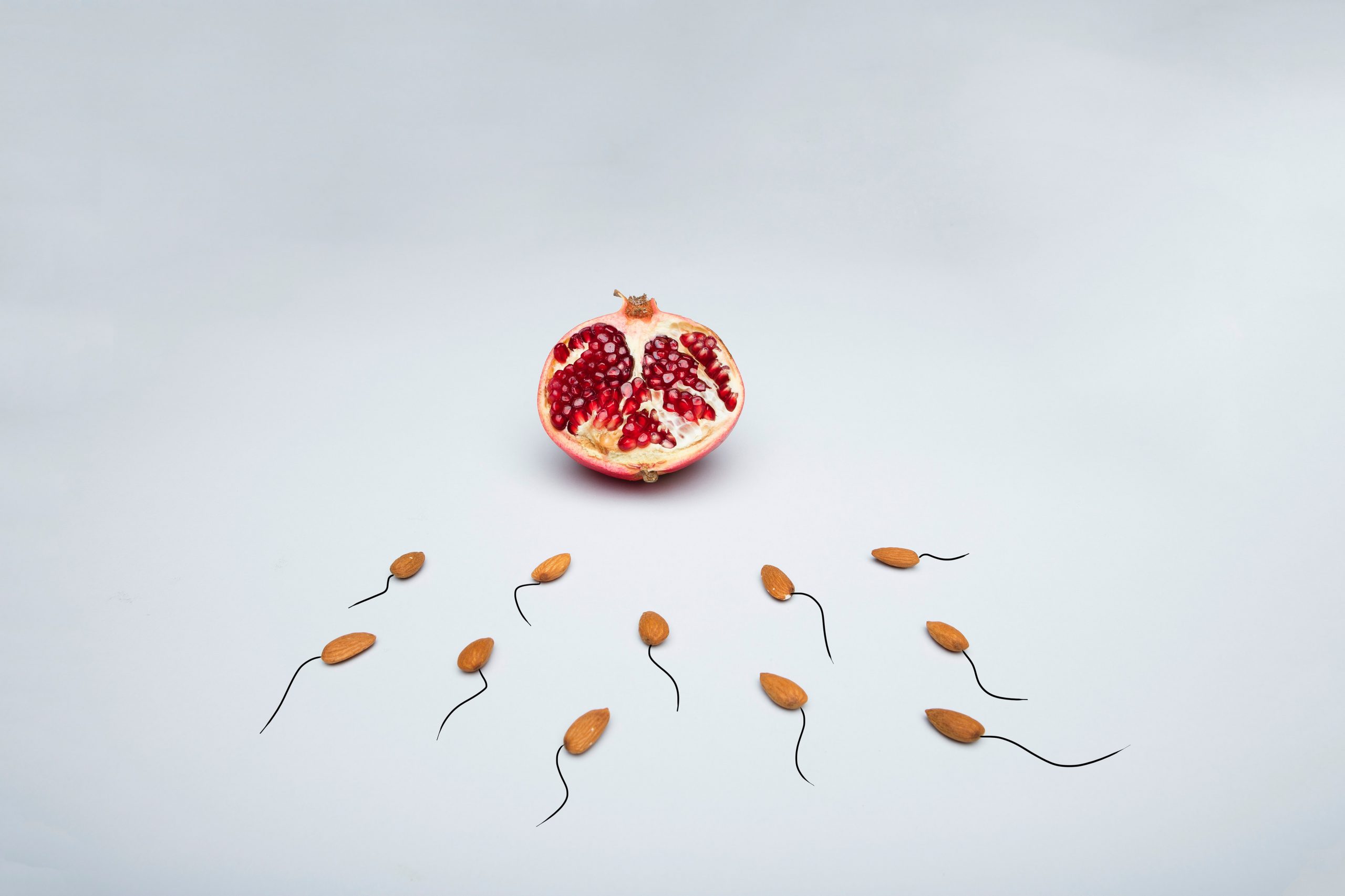How Tos
Resources
Style
Planning
View All
If you’ve been diagnosed with Polycystic Ovary Syndrome (PCOS), you’ve probably been told that birth control is the go-to solution. While it can help regulate cycles and manage symptoms, it’s not a one-size-fits-all fix—and it certainly doesn’t address the root causes of PCOS. The good news? There are plenty of science-backed, natural strategies to help you take control of your health, balance your hormones, and feel your best. From nutrition and exercise to stress management and supplements, this article explores effective alternatives to birth control for managing PCOS.
Understanding PCOS and Its Symptoms
PCOS is a complex endocrine disorder characterized by hyperandrogenism, ovulatory dysfunction, and polycystic ovarian morphology. It is associated with disruptions in the hypothalamic-pituitary-ovarian (HPO) axis, leading to irregular menstrual cycles and anovulation. Elevated levels of luteinizing hormone (LH) relative to follicle-stimulating hormone (FSH) contribute to excessive ovarian androgen production, resulting in clinical manifestations such as hirsutism, acne, and alopecia.
Insulin resistance is a central feature of PCOS, affecting up to 70% of individuals with the condition. Hyperinsulinemia exacerbates ovarian androgen secretion and inhibits hepatic production of sex hormone-binding globulin (SHBG), further increasing circulating free androgens. This metabolic dysfunction predisposes individuals to weight gain, dyslipidemia, and an increased risk of type 2 diabetes and cardiovascular disease.
Additionally, PCOS is associated with chronic low-grade inflammation, as evidenced by elevated levels of inflammatory markers such as C-reactive protein (CRP) and interleukin-6 (IL-6). These inflammatory pathways may contribute to the pathophysiology of insulin resistance and ovarian dysfunction. Given the heterogeneity of PCOS phenotypes, a personalized and multifaceted approach that addresses both endocrine and metabolic abnormalities is essential for effective symptom management.
1. Nutrition for PCOS Management
Diet plays a crucial role in managing PCOS symptoms. The right food choices can help regulate blood sugar levels, reduce inflammation, and balance hormones.
Prioritize Whole, Nutrient-Dense Foods
A diet rich in whole, unprocessed foods can significantly improve PCOS symptoms. Key dietary guidelines include:
- Low Glycemic Index (GI) Carbohydrates: Foods like whole grains, legumes, and non-starchy vegetables help regulate blood sugar levels.
- Healthy Fats: Incorporating sources such as avocados, nuts, seeds, and olive oil can improve insulin sensitivity and support hormone production.
- Lean Proteins: Chicken, fish, tofu, and legumes can help maintain stable blood sugar and support muscle mass.
Reduce Inflammatory Foods
Chronic inflammation is a common feature of PCOS. To minimize inflammation, avoid:
- Processed foods high in seed oils and refined sugars
- Excessive dairy and gluten (which may exacerbate inflammation in some individuals)
- Artificial additives and preservatives
Support Gut Health
The gut microbiome plays a significant role in hormone regulation. Probiotic-rich foods such as yogurt, kefir, kimchi, and sauerkraut can improve gut health and support metabolic balance.
2. Exercise and Movement
Regular physical activity is one of the most effective ways to improve insulin sensitivity, regulate menstrual cycles, and manage weight with PCOS.
Strength Training
Resistance training, including weight lifting and bodyweight exercises, can enhance insulin sensitivity, support lean muscle mass, and improve metabolic health.
Cardio Workouts
Moderate-intensity cardio exercises like brisk walking, cycling, or swimming can improve cardiovascular health and help with weight management.
Mindful Movement
Yoga and Pilates can help lower cortisol (stress hormone) levels and improve hormone balance, making them beneficial for managing PCOS symptoms.
3. Brown Fat and PCOS
Recent research has highlighted the potential role of brown adipose tissue (BAT), commonly known as brown fat, in managing Polycystic Ovary Syndrome (PCOS). Unlike white fat, which stores energy, brown fat burns calories to generate heat, thereby enhancing metabolism. This thermogenic property of brown fat can improve insulin sensitivity and metabolic health, which are often compromised in women with PCOS.
Strategies to Activate Brown Fat:
- Cold Exposure: Regular exposure to cold temperatures can stimulate brown fat activity. Practices such as cold showers or spending time in cooler environments may enhance BAT function.
- High-Intensity Interval Training (HIIT): Engaging in HIIT exercises has been associated with increased brown fat activation, contributing to improved metabolic outcomes.
- Dietary Choices: Consuming foods rich in healthy fats, particularly omega-3 fatty acids found in fish oil and flaxseeds, may support brown fat activity and overall metabolic health.
Incorporating these strategies into a holistic lifestyle approach may offer additional benefits for managing PCOS symptoms, complementing other interventions such as nutrition, exercise, stress management, and supplementation.
4. Stress Management and Sleep
Chronic stress and poor sleep can worsen PCOS symptoms by elevating cortisol levels and disrupting hormonal balance.
Stress-Reduction Techniques
- Meditation and Deep Breathing: Practicing mindfulness and controlled breathing can help reduce stress hormones.
- Journaling and Therapy: Expressing emotions and seeking professional support can help manage stress and anxiety related to PCOS.
- Spending Time in Nature: Outdoor activities and exposure to sunlight can help regulate circadian rhythms and improve mood.
Prioritizing Quality Sleep
- Maintain a Consistent Sleep Schedule: Going to bed and waking up at the same time each day supports hormonal balance.
- Limit Screen Time Before Bed: Blue light exposure from screens can disrupt melatonin production, affecting sleep quality.
- Create a Restful Sleep Environment: Keep your bedroom cool, dark, and free from distractions to promote deep sleep.
5. Natural Supplements for PCOS
Several supplements have been shown to support hormonal balance and improve PCOS symptoms.
Inositol
Myo-inositol and D-chiro-inositol are B-vitamin-like compounds that improve insulin sensitivity and ovarian function, helping to regulate menstrual cycles and reduce androgen levels.
Omega-3 Fatty Acids
Found in fish oil and flaxseeds, omega-3s help reduce inflammation, support heart health, and may improve insulin resistance in women with PCOS.
Vitamin D
Many women with PCOS have low vitamin D levels, which can contribute to insulin resistance and hormonal imbalances. Supplementing with vitamin D can improve metabolic and reproductive health.
Magnesium
Magnesium supports muscle relaxation, reduces inflammation, and helps regulate blood sugar levels, making it beneficial for women with PCOS.
6. NAC Over Metformin
N-Acetylcysteine (NAC) is gaining attention as a natural alternative to metformin for managing insulin resistance in PCOS.
NAC has been shown to:
- Improve insulin sensitivity
- Reduce oxidative stress and inflammation
- Support detoxification and liver health
- Promote ovulation and improve fertility outcomes
While metformin is a commonly prescribed medication for PCOS-related insulin resistance, it often comes with gastrointestinal side effects. NAC provides similar benefits without the discomfort, making it a promising option for those looking for natural interventions.
7. Alternative Therapies
Holistic approaches can complement lifestyle changes and provide additional support for PCOS management.
Acupuncture
Acupuncture has been found to improve ovulation, reduce androgen levels, and enhance insulin sensitivity in women with PCOS.
Herbal Medicine
- Spearmint Tea: Studies suggest that drinking spearmint tea may help lower testosterone levels and reduce hirsutism (excess hair growth).
- Cinnamon: This common spice has been shown to improve insulin sensitivity and regulate menstrual cycles in women with PCOS.
- Licorice Root: Used in traditional medicine, licorice root may help reduce androgen levels and support adrenal health.
8. Managing PCOS and Fertility
For women trying to conceive, lifestyle and dietary changes can significantly improve fertility outcomes without the need for birth control or medication.
Maintain a Healthy Weight
Even a modest weight loss of 5-10% can improve ovulation and increase the chances of conception.
Track Ovulation
Using basal body temperature (BBT) charting or ovulation predictor kits can help women with PCOS identify their most fertile days.
Consider Fertility-Supporting Supplements
Coenzyme Q10 (CoQ10), N-acetylcysteine (NAC), and vitamin B complex can support egg quality and reproductive function.
Conclusion
While birth control pills can be effective for managing PCOS symptoms, they are not the only solution. A holistic approach that includes dietary changes, exercise, stress management, and alternative therapies can provide long-term relief and improve overall well-being. Every woman’s journey with PCOS is unique, and finding the right combination of lifestyle modifications and natural treatments can empower individuals to take control of their health.

Sources
https://pmc.ncbi.nlm.nih.gov/articles/PMC9160465
https://doi.org/10.1002/ptr.2900
https://obgyn.onlinelibrary.wiley.com/doi/10.1111/j.1447-0756.2012.01844.x
https://ijmr.org.in/issue/2015-142-3
https://translational-medicine.biomedcentral.com/articles/10.1186/s12967-021-02817-2
https://www.degruyter.com/document/doi/10.7556/jaoa.2020.050/html

Ever wondered what steps you should take to optimize your nutrition before starting IVF?
Well wonder no more!
Here are 3 steps to preparing for your IVF journey
1.Take the time to optimize your lifestyle with your partner, whoever they may be!
It is important to keep in mind that dietary and lifestyle changes don’t happen overnight. Did you know that it takes approximately 3 whole months for both your eggs and sperm to fully mature? This really highlights why it is so important to spend at least 3 months prior to your first cycle of IVF making any required changes to your diet and lifestyle.
This may include:
- Optimizing your diet (I’ll go into more detail later in this blog post).
- Understanding your cycle. Speak to your fertility specialist or dietitian about your current menstrual cycle and ovulation. There are likely several strategies you can undertake to optimize and balance your cycle.
- Start or maintain a healthy, exercise routine. The current physical activity guidelines for adults state that you should aim to get at least 150-300 minutes of moderately intense exercise each week or 75-150 minutes of vigorous exercise each week for optimal health.
- Take steps to reduce your stress. Studies have repeatedly shown that chronic stress increases the level of inflammation in our body which increases oxidative stress and subsequent damage to the quality of our eggs and sperm. See my previous blog post for tips on how to reduce your stress!
2. Increase your consumption of dietary antioxidants!
One way you can do this is to adopt a Mediterranean-style diet. This pattern of eating has numerous benefits (particularly when it comes to fertility and IVF!).
It has been shown to:
- Improve both egg and sperm quality
- Increase embryo yields when you are undergoing IVF treatments
- Optimize fertility outcomes
- Enhance pregnancy outcomes (encourages carrying a healthy baby to full term with no complications)
- Decreases inflammation in the body thus improving both egg and sperm quality and increases the likelihood of conception
So what does a Mediterranean diet look like?

- Consuming plenty of colourful fruits and vegetables every day. A simple way to achieve this is to aim for at least 3 different colors on your plate at every meal!
- Consuming wholegrains (breads, cereals, rice, quinoa etc.)
- Cooking and using healthy fats like extra-virgin olive oil
- Eating a variety of different nuts and seeds
- Including legumes/beans in your diet (think of them like a vegetable with protein!)
- Plenty of seafood (with a particular emphasis on oily fish) at least twice each week
- Moderate consumption of dairy foods, eggs, and poultry (chicken, duck, turkey)
- Limiting your consumption of red meat
A Mediterranean style diet will ensure that you get all of the below nutrients that studies have shown are essential for quality eggs and sperm.
- Omega-3 fatty acids
- CoQ10
- Zinc
- Vitamin D
- Selenium
- Folate
- Vitamin E
- Vitamin C
- Lycopene
Studies have also shown that the wholegrains in a Mediterranean-style diet will aid the implantation of your fertilized egg!
3. Get a tailored supplement plan!
There are many ways that nutritional supplements can improve your chances of conceiving during IVF. However, it’s not as simple as taking your average prenatal.
A tailored supplement plan will take into account several factors including your:
- Age
- Medical history
- Reproductive history
- Current oral intake
- Weight and height
This will mean that you are taking supplements that have been individually tailored for your specific needs!
If you would like to learn how to optimize your nutrition before starting IVF, schedule your free 30 minute 1:1 strategy call with me!

References:
1.Mediterranean Diet 101: Meal Plan, Foods List, and Tips (healthline.com)
2. Maternal whole grain intake and outcomes of in vitro fertilization (nih.gov)

Like many of my clients and readers, I was given hormonal birth control with absolutely no discussion on the side effects of the pill. I was handed the pill and never really thought twice about it. I just knew it gave me a “regular” period and would help me protect against an unwanted pregnancy. It was only in my THIRTIES that I discovered how the pill depletes certain nutrients, affects mood, weight, and so much more. If you’re curious about which nutrients are depleted on hormonal birth control, then keep reading on.

8 Nutrients depleted on hormonal birth control and how they impact fertility:
Zinc
Found in foods such as eggs, seafood, meat, nuts, seeds, beans and whole grains. Zinc plays an important role in both egg and sperm health.
Magnesium
Found in foods such as avocado, banana, seafood, green leafy vegetables, nuts and seeds. Magnesium plays an important role in sleep, bone health and our muscles ability to relax.
Vitamin C
Found in foods such as oranges, broccoli, kiwi fruit and guava. Vitamin C is a valuable antioxidant that keeps our eggs and sperm protected from oxidative stress caused by free radicals.
Folate
Found in green leafy vegetables and fortified breads and cereals. Folate is essential when trying to conceive and helps to prevent the formation of neural tube defects in early pregnancy.
Selenium
Found in foods such as Brazil nuts, meats and seafood. Selenium plays a valuable role in our thyroid function and helps to prevent sperm from mutating or becoming damaged.
Vitamin B2
Found in eggs, meats and dairy products. Vitamin B2 is a common nutrient depleted when on the pill and is often the culprit behind those pesky headaches!
Vitamin B6
Found in foods like breads and cereals. Vitamin B6 is commonly depleted in those taking the pill. It plays an important role in fertility and the luteal phase of the menstrual cycle.
Vitamin B12
Found in foods such as fish, beef, and fortified cereals. B12 is essential for healthy cell formation, a must when trying to conceive.
Ideally you would want to ensure that these levels are checked and corrected where necessary before you start thinking about conceiving to ensure a healthy baby and pregnancy. You can start a prenatal, a few months before coming off the pill to help with the transition of coming off.
Wondering what else you can do to support your body when coming off the pill?
Let’s face it, coming off the pill can be a scary thought and can lead to some not so nice side-effects including:
- Post-pill amenorrhea
- Painful, heavy periods
- Irregular cycles that are hard to predict
- Acne
- Headaches or migraines
- Changes in weight (loss or gain)
- Changes to mood
- Digestive upset (IBS like symptoms)
- Breast tenderness
Supporting your body through nutrition can be a great way to make the transition easier.
Try these 9 tips to support your body when coming off the pill

- Aim to have at least 1 bowel movement each day to facilitate the removal of excess estrogen in the body.
- Eat plenty of cruciferous vegetables to lower estrogen levels – try eating 1 cup of bok or pak choy, broccoli, cabbage, cauliflower, arugula and Brussel sprouts each day!
- Eat regularly – aim to eat every 2-3 hours to support blood sugar and hormone balance. Putting your body under too much stress can increase the stress hormone cortisol.
- Eat enough fibre to encourage regular bowel movements – aim to eat between 3-6 cups of colourful, leafy vegetables each day.
- Eat lean protein to support your detox pathways – try turkey, chicken, pork, beef, and seafood.
- Include plenty of healthy fats to support hormone creation – try extra-virgin olive oil, avocado, nuts and seeds.
- Stay hydrated by drinking plenty of water – aim for at least 8 cups per day.
- Try to avoid highly processed foods – think sugary foods, fast foods and refined oils.
- Avoid alcohol if you can! Alcohol is also removed via our liver, so give it a break if you can.
References:
- How Birth Control Pills Affect Your Nutritional Needs – Scientific American
- Oral contraceptives and changes in nutritional requirements – PubMed (nih.gov)
Looking for more support with your fertility? Book your free 30 minute 1:1 strategy call with me to learn how I can support you using functional nutrition, specialty lab testing, and targeted supplements. Can’t wait to speak to you!

5 easy ways to reduce stress while trying to conceive
Embarking on a fertility journey can feel long and overwhelming at times. It is important to have strategies in place to help you cope with stress and anxiety, particularly if you are a Type-A personality that likes everything to be perfect at all times! These 5 tips will help you to reduce your stress while you are trying to conceive.
Try as best as you can to take things back-to-basics, by taking perfectionism off the table. Focusing on the basic pillars of health and wellness, can reduce stress without adding additional overwhelming tasks to your already very long to-do list.
If our stress levels remain high for too long, we can end up with elevated levels of cortisol, a hormone that is made up of the same building blocks as progesterone.
If our body is busy focusing on making cortisol, it places less importance on progesterone production, leading to a reduced supply. This can lead to several negative side-effects, particularly in respect to fertility including:
- Estrogen dominance
- Decreased ability to conceive
- Difficulty with mood stabilization
Progesterone helps us to grow a thick uterine lining which is then shed during menstruation. If we don’t have enough progesterone, then we end up with a lighter period, and a thinner uterine lining to support healthy implantation.
So we can see just how big of an impact stress can have on our ability to conceive!
Try these 5 easy ways to reduce your stress while you are trying to conceive:
-
Ensure you get regular movement
Be sure to move your body daily, even if it is in a very gentle way. Research has shown time and time again, that exercise is incredibly beneficial for stress and our mental health as a whole. Try activities like yoga, walking, and tai-chi to get your blood flowing.
2. Get enough sleep
Take this time to create a relaxing night time routine to help you unwind and get adequate sleep. Try taking time off devices to read, listening to a podcast, trying a mindfulness exercise or talking to a loved one. Aiming for 7 to 8 hours of sleep each night will help your body to get the rest it needs, without adding additional stress hormones into the mix.
3. Connect with others
Remind yourself of the supportive community that you have around you on this journey. Reach out to friends, family, support services at your fertility clinic or a counselling service if you need to. Research has shown that good social supports have a number of protective effects on our health (all of which are beneficial for improving our chances of conceiving) including:
- Decreased blood pressure
- Normal heart rate
- Reduced cortisol levels
4. Keep busy!
Type-A people are prone to overthinking and dwelling on the negative. Staying busy during your fertility journey can help you to stay positive and not focus on the things that we can’t control.
Take up a new hobby, clean out that cupboard, cook a new recipe or plan a day trip to somewhere you haven’t been before! Keep your mind and hands busy as often as you can to help reduce your stress.
5. Reframe your thoughts
Reminding yourself of the strength it has taken you to get to this point can be helpful for Type-A personalities. Try to avoid dwelling on negatives and focus on the facts. Spending time in a negative space will only make the process feel harder. Writing down your thoughts and linking them with facts can be a helpful visual and can help you to break negative thought processes.
For example, if you regularly think “I’m not meant to be a mother, this will never happen for me”, counteract this thought with several facts for example:
- I have several caring and motherly instincts and that is clearly seen in how I care for my partner and friends
- This may not happen right now, but that does not mean it will never happen
If you try these tips and are still struggling to find enough support while you are trying to conceive, book your free 30 minute 1:1 strategy call with me to learn how I can support you using functional nutrition, specialty lab testing, and targeted supplements. Can’t wait to speak to you!

References:
The Preconception Playbook
This free playbook provides specific actionable tips to get started on your fertility journey, as well as what to avoid while you're trying to conceive.
Get the free playbook

